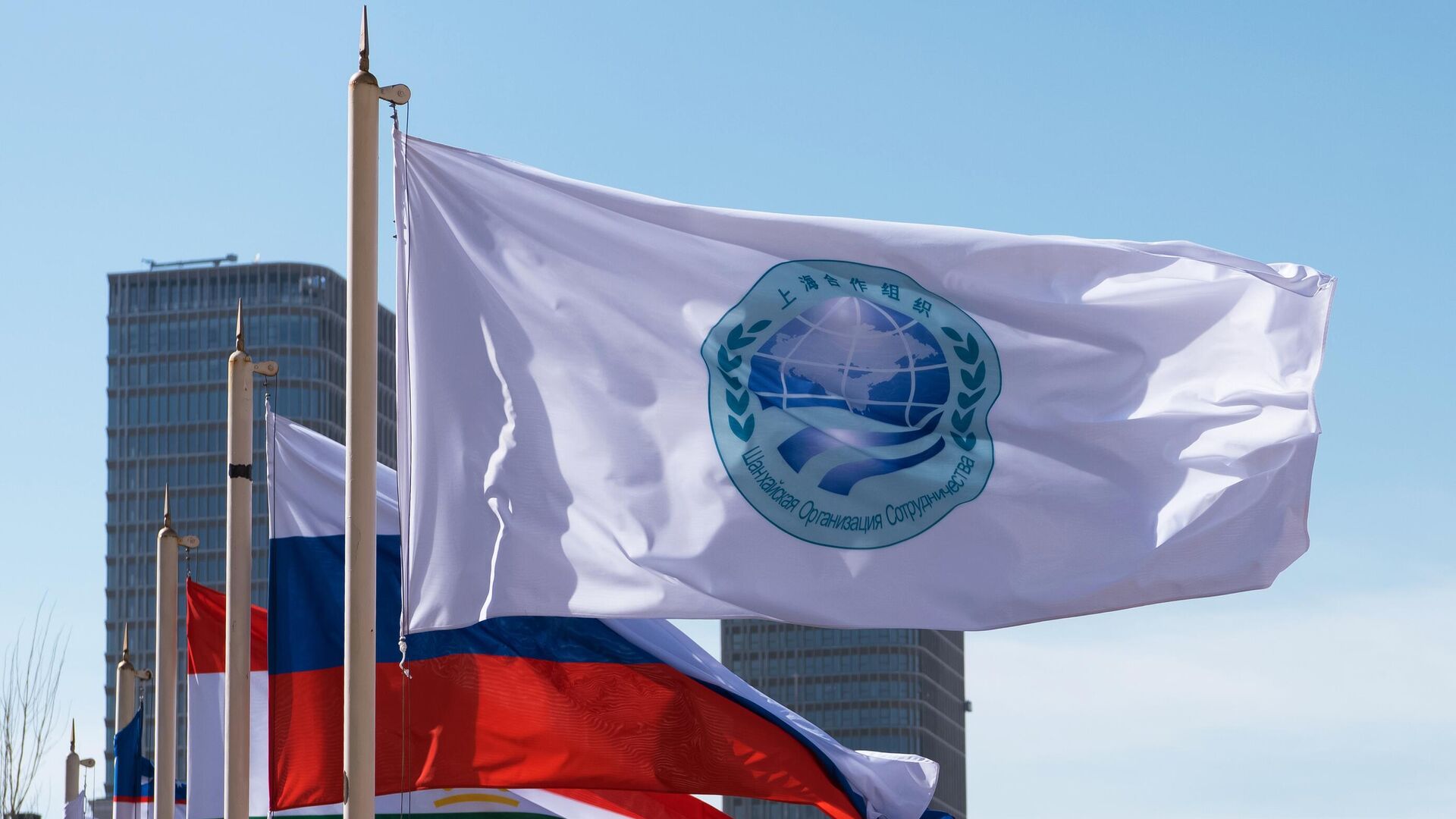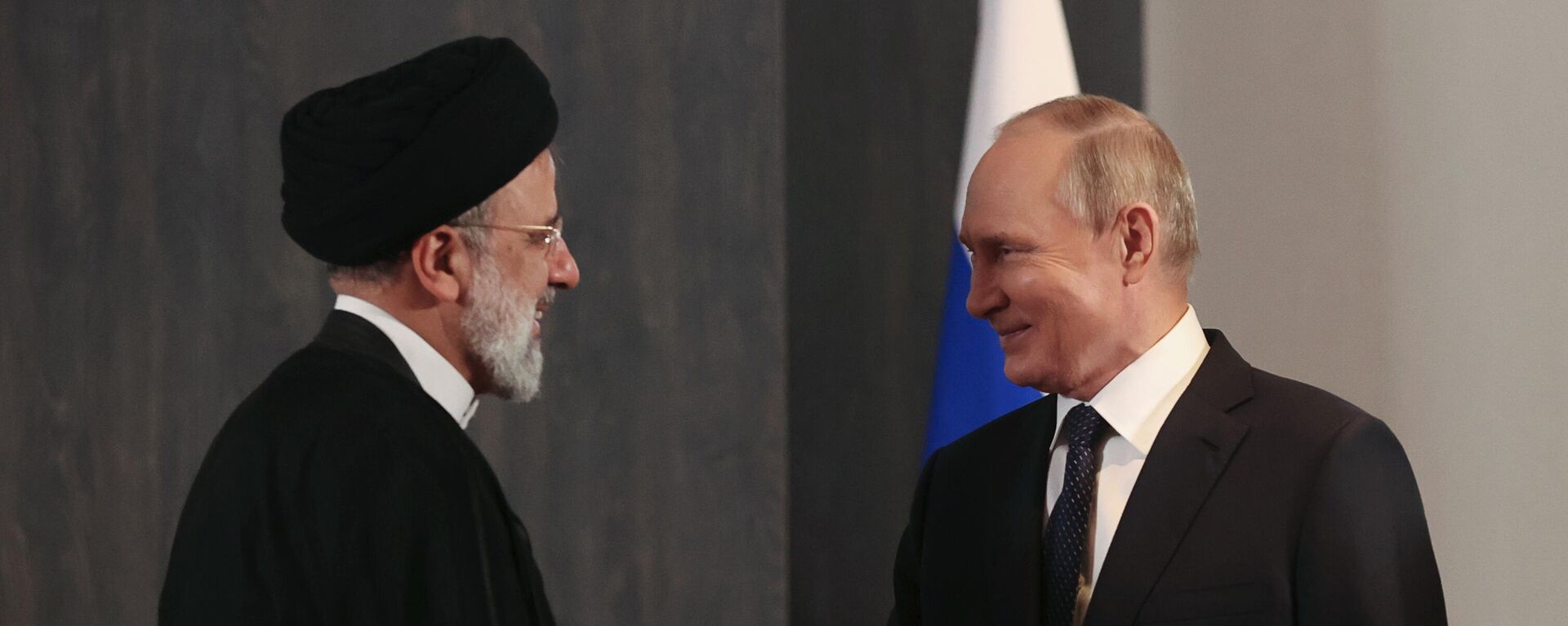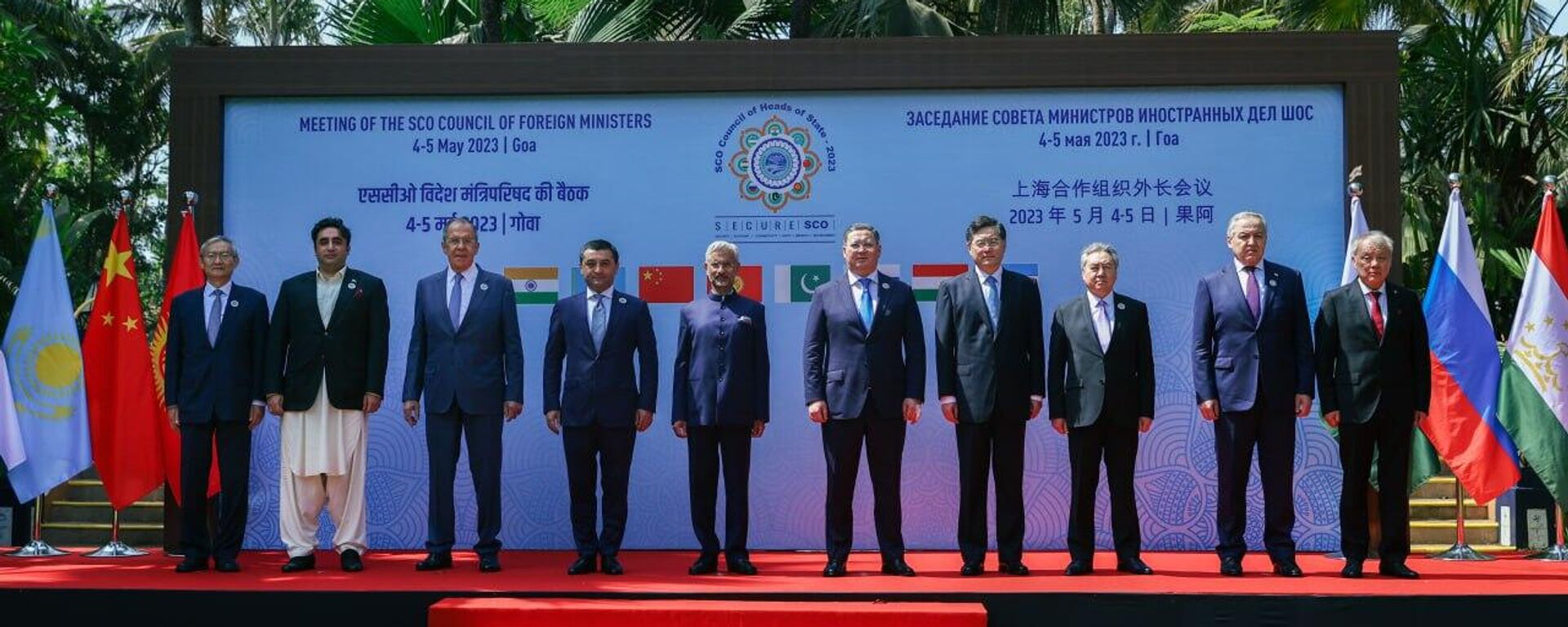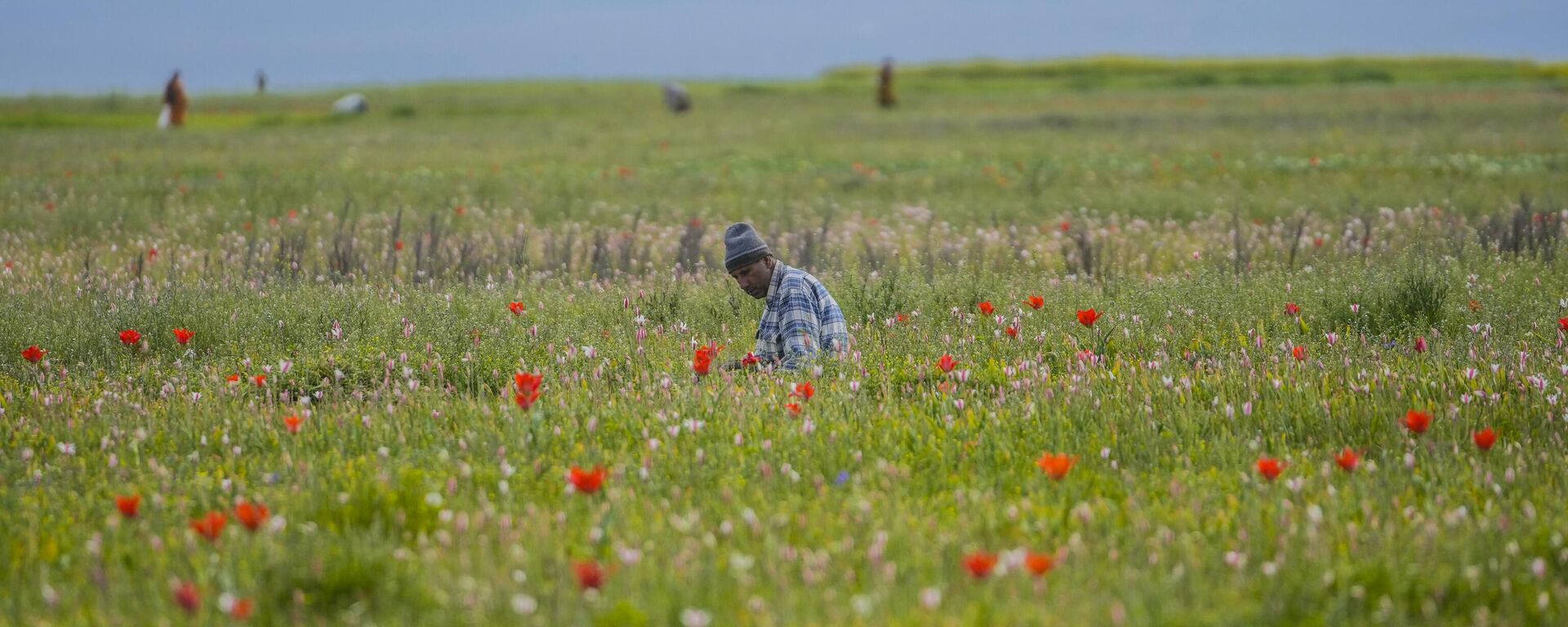https://sputniknews.in/20230703/why-is-sco-strategically-significant-for-india-2805992.html
Why is SCO Strategically Significant for India?
Why is SCO Strategically Significant for India?
Sputnik India
The Shanghai Cooperation Organization (SCO) is a Beijing-headquartered intergovernmental organization comprising India, China, Russia, Kazakhstan, Kyrgyzstan, Tajikistan, Uzbekistan, and Pakistan.
2023-07-03T18:02+0530
2023-07-03T18:02+0530
2023-07-03T18:02+0530
shanghai cooperation organisation (sco)
india
china
russia
ukraine
belarus
iran
narendra modi
russian oil
chabahar port
https://cdn1.img.sputniknews.in/img/07e7/03/1c/1345532_0:0:2783:1566_1920x0_80_0_0_ea6a0c51cb60b9b72e388a2f4eb5b3b6.jpg
Indian Prime Minister Narendra Modi will chair the 22nd meeting of the Shanghai Cooperation Organisation (SCO) Council of Heads of State in a virtual mode on Tuesday.The meeting of the SCO leaders will witness Iran joining the Beijing-backed grouping as a fully-fledged member. At the meeting, the SCO states will also formalize Belarus’ Memorandum of Commitment to join.New Delhi has also invited Mongolia—as an observer—and Turkmenistan—as the guest of the chair—to the Eurasian economic and security grouping.SCO Secretary-General Zhang Ming, who heads the secretariat in Beijing, and Ruslan Mirzaev, the director of Regional Anti-Terrorist Structure (RATS) Executive Committee, will also participate in the heads of state meeting.New Delhi has also invited the heads of the UN, Association of Southeast Asian Nations (ASEAN), Commonwealth of Independent States (CIS), Collective Security Treaty Organization (CSTO), Eurasian Economic Union (EAEU) and Conference on Interaction and Confidence Building Measures in Asia (CICA) to the meeting.The themes of India’s presidency of the organization, as spelled out by Prime Minister Modi, is towards a ‘SECURE’ SCO. Secure is an acronym for security, economy and trade, connectivity, unity, respect for sovereignty and territorial integrity and environment.The leaders’ meeting on Tuesday will be the culmination of India’s yearlong SCO presidency, the first time New Delhi has held the leadership of the organization since its formal accession in 2017.At the meeting, India will hand over the grouping’s presidency to Kazakhstan.What are SCO's Aims and Objectives?The creation of the SCO was announced in 2001 in Shanghai by six governments- Russia, China, Kazakhstan, Kyrgyzstan, Tajikistan and Uzbekistan. Since the grouping’s inception, it has expanded its membership base to eight by adding two new members—India and Pakistan. Both countries joined the SCO in 2017 at Astana.The aims and objectives of the SCO are spelled out in its Charter, which was formally adopted in 2003 by founding members. In fact, Russian Foreign Minister Sergey Lavrov said last week that the Western countries have been involved in efforts to “undermine” the non-west “regional integration process” envisaged by the SCO.The SCO has two permanent mechanisms—the Beijing-based Secretariat and the Tashkent-headquartered RATS, which promotes counter-terror cooperation among the member states.SCO states are also involved in efforts to ensure peace and stability in Afghanistan through the ‘SCO-Afghanistan Contact Group’, which was formally announced at Qingdao in 2018.Why is SCO Important for Region?According to a brief on the SCO by the Indian government, around 42 percent of the global population lives in the eight SCO countries, making it the most populous regional grouping globally outside the United Nations. Notably, it comprises the world’s most populous nations—India and China.SCO states comprise around 25 percent of the global GDP. China, India and Russia also figure on the list of top ten economies globally, as per 2022 estimates.Dr. Sumant Swain, the deputy director of New Delhi-based think tank Eurasian Foundation, told Sputnik that the SCO’s role has grown “very significant” for maintaining the “global economic stability” amid ongoing geopolitical fragmentation in the wake of Moscow’s special military operation.The spillover effects of the Ukraine crisis, including volatility in food and fuel prices, has had a “disproportionate impact” on the low and middle-income nations of the Global South. A number of developing countries, including those in the SCO orbit, have been affected by worsening debt stress because of their inability to service their international loans due to lack of foreign reserves.For instance, Pakistan, an SCO member, has been grappling with a balance-of-payments (BOP) crisis and high inflationary pressure which has been exacerbated by the Covid-19 pandemic and the Ukraine crisis.What is SCO's Significance for India?Indian Foreign Minister S Jaishankar has said that SCO membership serves New Delhi’s interests.Swain underlined that China, which has consistently ranked among New Delhi’s top two trading partners, is an SCO member. He also noted that Russia now ranks as New Delhi’s biggest supplier of crude.Global data analytics firm Kpler has said that Russian crude exports to India jumped to 2.2 million barrels per day (bpd) in June, marking an all-time high. India’s crude imports from Russia have been increasing for ten straight months now.He also said that Iran’s membership could provide a fillip to make the port of Chabahar, which is being developed by an Indian government consortium, a regional hub.While New Delhi has invested hundreds of millions of dollars in the Iranian port, private companies have been wary of utilizing the facility on account of attracting secondary sanctions from the US.Swain also highlighted that the SCO could prove to be a platform for fostering meaningful dialogue between China and India, which are currently involved in a border dispute in the eastern Ladakh region.Three Pillars of India’s SCO PresidencyUnder its ongoing presidency of the SCO, India has created three “pillars” of cooperation to bolster overall ties among the SCO states.Why Russia Wants India in the SCO?Russia’s new Foreign Policy ‘Concept’ unveiled by President Vladimir Putin in March categorically calls to enhance the “capacity and international role of the interstate associations” such as SCO and BRICS.The foreign policy document also says that Moscow would “continue to build up a particularly privileged strategic partnership” with India through the further strengthening of bilateral trade and ensuring “resistance to destructive actions of unfriendly states and their alliances."Bilateral trade turnover hit an all-time high of $35 billion in 2022-23, with both countries exploring avenues to diversify economic cooperation through an increase in Indian exports to Russia.India is also negotiating a free trade pact with the EAEU, which once finalized would increase economic interactions.The International North-South Transport Corridor (INSTC), which runs from Russia through central Asia to Iran and India, is also a major connectivity initiative in the pipeline aimed at bolstering trade and investment ties between New Delhi and Moscow.Swain underlined that India is a big defense market for Russia, which he described as one of key components of the bilateral relationship.
https://sputniknews.in/20230630/irans-sco-membership-to-be-formalized-at-july-4-summit-russian-fm-2757339.html
https://sputniknews.in/20230505/with-growing-interest-from-non-western-nations-sco-could-turn-into-mini-un-experts-1829531.html
https://sputniknews.in/20230616/global-south-hardest-hit-by-supply-chain-disruptions-in-agriculture---pm-modi--2514288.html
india
china
russia
ukraine
belarus
iran
chabahar port
pakistan
central asia
asean
afghanistan
Sputnik India
feedback.hindi@sputniknews.com
+74956456601
MIA „Rossiya Segodnya“
2023
Dhairya Maheshwari
https://cdn1.img.sputniknews.in/img/07e6/0c/13/138962_0:0:641:640_100x100_80_0_0_2cb44360dbcdf6d84bf4b299cd045917.jpg
Dhairya Maheshwari
https://cdn1.img.sputniknews.in/img/07e6/0c/13/138962_0:0:641:640_100x100_80_0_0_2cb44360dbcdf6d84bf4b299cd045917.jpg
News
en_IN
Sputnik India
feedback.hindi@sputniknews.com
+74956456601
MIA „Rossiya Segodnya“
Sputnik India
feedback.hindi@sputniknews.com
+74956456601
MIA „Rossiya Segodnya“
Dhairya Maheshwari
https://cdn1.img.sputniknews.in/img/07e6/0c/13/138962_0:0:641:640_100x100_80_0_0_2cb44360dbcdf6d84bf4b299cd045917.jpg
sco member india, sco india, india sco, sco membership india, india to join sco, russia sco map india, india at sco, shanghai cooperation organisation india, shanghai cooperation organisation, sco, when india join sco, why russia wanted india in sco, when india became member of sco, what is the strategic importance of sco for india, why shanghai cooperation organisation has importance for india
sco member india, sco india, india sco, sco membership india, india to join sco, russia sco map india, india at sco, shanghai cooperation organisation india, shanghai cooperation organisation, sco, when india join sco, why russia wanted india in sco, when india became member of sco, what is the strategic importance of sco for india, why shanghai cooperation organisation has importance for india
Why is SCO Strategically Significant for India?
The Shanghai Cooperation Organisation (SCO) is a Beijing-headquartered intergovernmental organization comprising India, China, Russia, Kazakhstan, Kyrgyzstan, Tajikistan, Uzbekistan and Pakistan.
Indian Prime Minister Narendra Modi will chair the 22nd meeting of the
Shanghai Cooperation Organisation (SCO) Council of Heads of State in a virtual mode on Tuesday.
The meeting of the SCO leaders will witness Iran joining the Beijing-backed grouping as a fully-fledged member. At the meeting, the SCO states will also formalize Belarus’ Memorandum of Commitment to join.
New Delhi has also invited Mongolia—as an observer—and Turkmenistan—as the guest of the chair—to the Eurasian economic and security grouping.
SCO Secretary-General Zhang Ming, who heads the secretariat in Beijing, and Ruslan Mirzaev, the director of Regional Anti-Terrorist Structure (RATS) Executive Committee, will also participate in the heads of state meeting.
New Delhi has also invited the heads of the UN, Association of Southeast Asian Nations (ASEAN), Commonwealth of Independent States (CIS), Collective Security Treaty Organization (CSTO), Eurasian Economic Union (EAEU) and Conference on Interaction and Confidence Building Measures in Asia (CICA) to the meeting.
The themes of India’s presidency of the organization, as spelled out by Prime Minister Modi, is towards a ‘SECURE’ SCO. Secure is an acronym for security, economy and trade, connectivity, unity, respect for sovereignty and territorial integrity and environment.
The leaders’ meeting on Tuesday will be the culmination of
India’s yearlong SCO presidency, the first time New Delhi has held the leadership of the organization since its formal accession in 2017.
At the meeting, India will hand over the grouping’s presidency to Kazakhstan.
What are SCO's Aims and Objectives?
The creation of the SCO was announced in 2001 in Shanghai by six governments- Russia, China, Kazakhstan, Kyrgyzstan, Tajikistan and Uzbekistan. Since the grouping’s inception, it has expanded its membership base to eight by adding two new members—India and Pakistan. Both countries joined the SCO in 2017 at Astana.
The aims and objectives of the SCO are spelled out in its Charter, which was formally adopted in 2003 by founding members.
The SCO charter calls to strengthen mutual trust and neighborliness, promoting political and economic cooperation, ensuring peace and stability and establishment of a “fair new international economic and political order."
In fact, Russian Foreign Minister Sergey Lavrov said last week that the Western countries have been involved in efforts to “undermine” the non-west “regional integration process” envisaged by the SCO.
The SCO has two permanent mechanisms—the Beijing-based Secretariat and the Tashkent-headquartered RATS, which promotes counter-terror cooperation among the member states.
SCO states are also involved in efforts to ensure peace and stability in Afghanistan through the ‘SCO-Afghanistan Contact Group’, which was formally announced at Qingdao in 2018.
Why is SCO Important for Region?
According to a brief on the SCO by the Indian government, around 42 percent of the global population lives in the eight SCO countries, making it the most populous regional grouping globally outside the United Nations. Notably, it comprises the world’s most populous nations—India and China.
SCO states comprise around 25 percent of the global GDP. China, India and Russia also figure on the list of top ten economies globally, as per 2022 estimates.
Dr. Sumant Swain, the deputy director of New Delhi-based think tank Eurasian Foundation, told Sputnik that the SCO’s role has grown “very significant” for maintaining the “global economic stability” amid ongoing geopolitical fragmentation in the wake of Moscow’s special military operation.
The spillover effects of the Ukraine crisis, including volatility in food and fuel prices, has had a “disproportionate impact” on the low and middle-income nations of the Global South. A number of developing countries, including those in the SCO orbit, have been affected by worsening debt stress because of their inability to service their international loans due to lack of foreign reserves.
For instance, Pakistan, an SCO member, has been grappling with a balance-of-payments (BOP) crisis and high inflationary pressure which has been exacerbated by the Covid-19 pandemic and the Ukraine crisis.
“The SCO provides a platform for the nations to increase economic coordination to overcome economic issues affecting them,” Swain remarked.
What is SCO's Significance for India?
Indian Foreign Minister S Jaishankar has said that SCO membership serves New Delhi’s interests.
“India has a multi-directional foreign policy with many partners and it's not always necessary or sometimes possible that all partners get along with other partners. So, this is characteristic of the foreign policy in today's very fluid and you know I would say multipolar and sometimes uncertain volatile world,” Jaishankar said at a briefing after the SCO foreign ministers’ briefing in Goa in May.
Swain underlined that China, which has consistently ranked among New Delhi’s top two trading partners, is an SCO member. He also noted that Russia now ranks as New Delhi’s biggest supplier of crude.
Global data analytics firm Kpler has said that
Russian crude exports to India jumped to 2.2 million barrels per day (bpd) in June, marking an all-time high. India’s crude imports from Russia have been increasing for ten straight months now.
“A growing volume of India’s energy needs are being met by supplies from SCO states. With the inclusion of Iran as a full-fledged member, New Delhi might look at re-establishing its energy relationship with Tehran,” Swain said.
He also said that Iran’s membership could provide a fillip to make the port of Chabahar, which is being developed by an Indian government consortium, a regional hub.
While New Delhi has invested hundreds of millions of dollars in the Iranian port, private companies have been wary of utilizing the facility on account of attracting secondary sanctions from the US.
Swain also highlighted that the SCO could prove to be a platform for fostering meaningful dialogue between China and India, which are currently involved in a border dispute in the eastern Ladakh region.
“In the future, it could also serve as a meaningful platform to bolster global strategic stability. At this stage, I believe SCO could play a significant role in ensuring regional and global economic stability,” Swain said.
Three Pillars of India’s SCO Presidency
Under its ongoing presidency of the SCO, India has created three “pillars” of cooperation to bolster overall ties among the SCO states.
These ‘pillars’ are startups and innovation, science and technology and traditional medicine.
Why Russia Wants India in the SCO?
Russia’s new Foreign Policy ‘Concept’ unveiled by President Vladimir Putin in March categorically calls to enhance the “capacity and international role of the interstate associations” such as SCO and BRICS.
The foreign policy document also says that Moscow would “continue to build up a particularly privileged strategic partnership” with India through the
further strengthening of bilateral trade and ensuring “resistance to destructive actions of unfriendly states and their alliances."
Bilateral trade turnover hit an all-time high of $35 billion in 2022-23, with both countries exploring avenues to diversify economic cooperation through an increase in Indian exports to Russia.
India is also negotiating a free trade pact with the EAEU, which once finalized would increase economic interactions.
The International North-South Transport Corridor (INSTC), which runs from Russia through central Asia to Iran and India, is also a major connectivity initiative in the pipeline aimed at bolstering trade and investment ties between New Delhi and Moscow.
Swain said that, "India has always been and will continue to be an important strategic partner for Moscow." He also reckoned that the “economic importance” of Moscow for New Delhi has been demonstrated in the last year or so, with Russian crude imports helping India navigate the global volatility in energy prices.
Swain underlined that India is a big defense market for Russia, which he described as one of key components of the bilateral relationship.





